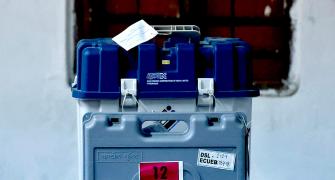
Avoid getting into a debt trap by using your credit judiciously. Anil Rego explains how
Credit cards are one of the most useful methods of payment today; no longer does one need to carry large amount of cash everywhere, and it is also relatively safer, thanks to the modern ‘chip and pin’ system used. However, most people are still unaware about how to use their credit cards properly and the various elements involved can add to one’s financial burden.
One of the easiest ways to overspend is through credit card usage; since one does not need to pay immediately, it is easier to get carried away. Let us look at credit cards a little more closely and see ways to use them smartly.
The benefits of using a credit card are that you can spend today and pay the bills after a certain time frame -- typically 45 days to 60 days, depending on the credit card provider. This is an important tool for those who want to benefit from short-term interest-free credit.
The second benefit of using a credit card is that it provides reward points on spending, but can also sometime lead to unwanted spending. So while making any purchase, it is advisable to first use cash or a debit card and use credit cards as the last resort. The proverb ‘there is no such thing as a free lunch’ applies very accurately to credit cards as the card issuers charge a hefty interest on part repayments or non-payments.
However, it is important to remember that you should not to use credit cards to make everyday purchases for items like food, clothing, and gas, as using a credit card as a substitute for cash can lead to accumulation of debt. This is mainly because credit cards allow one to purchase beyond their means, resulting in not being able to repay the card loans.
Ideally, one should compare the interest rates and the terms of various credit card companies before getting a credit card. With several credit card companies around, the buyer has various options and can avail facilities as per one's requirement. However, it is a healthy practice to own only one credit card, as owning more than one may lead to overspending and yield high interest rates.
The due date is the date by which the credit card outstanding should be paid off in order to avoid late payment charges and interest costs. Once a credit card facility has been accepted, it is your responsibility to keep track of the due date and make payments on time.
It is a healthy practice to payoff the dues a couple of days before the due date and if the payment is by cheque, keep in mind the time involved in cheque clearance. If you miss a payment date, you might get levied heavy late payment charges and interest costs. In India, most of the credit card companies charge interest between 18 per cent per annum to 60 per cent per annum, which is their major source of revenues.
Avoid defaulting with credit card companies and spoiling your credit history. Through organisations like Credit Information Bureau India Limited (CIBIL), one's entire credit history is continuously recorded and made available to lenders. If your past credit history looks clean and regular payments have been made, a credit card issuer may sometimes also consider the waiver of interest cost. So it’s always better to keep a good track record of payments.
It should be noted that even Income Tax authorities keep an eye on credit card users. Always keep the overall usage of credit card in line with your declared source of income. In fact, credit card issuers are required by the Income Tax Act to submit Annual Information Return (AIR) with the name and Permanent Account (PAN) number of all credit card customers whose annual usage exceeds Rs 200,000. This information collected by the Income Tax department, is then digitised in the Tax Information Network (TIN) and used for survey and monitoring purposes.
Summary:
- A credit card should never be used as a financing mechanism
- Keep track of due dates and bills to avoid default, as it may lead to high interest cost and loss of reputation of credit worthiness
- In times of difficulty, always consider various other options such as, balance transfer and EMIs, as these are financial tools made to help payments
Photograph: Paul De Los Reyes/Creative Commons
Anil Rego is the founder and CEO of Right Horizons, an investment advisory and wealth management firm that focuses on providing financial solutions that are specific to customer needs.









